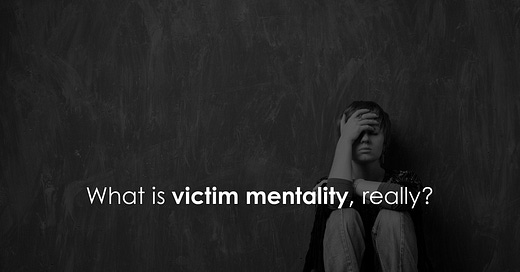Hello, and welcome to this week’s edition of Truth Bombs.
Today, we’re digging into one of the most insidious, misunderstood, and yet deeply human traps we can fall into: victim mentality.
We’ll explore what it means, how it manifests, why it’s so difficult to shake off—and most importantly, how we can move beyond it.
This isn’t about shaming ourselves or pointing fingers. It’s about reclaiming our power, redefining what it means to take responsibility, and challenging the stories we tell ourselves.
To help you—and me, frankly—to follow along clearly, I’ve divided today’s topic into five parts.
So with that out of the way, let’s get into it.
Part 1: Recognizing the Subtle Grip of Victim Mentality
What is Victim Mentality, Really?
Victim mentality isn’t a personality flaw, nor is it something that only “negative people” experience.
In reality, it’s a psychological and emotional pattern that almost everyone encounters at some point. It’s a way of seeing the world that says,
“Life happens to me, not for me.”
It’s the belief, sometimes unspoken and often unconscious, that circumstances, other people, or bad luck are constantly standing in our way.
Most of us don’t walk around openly identifying as “victims.” The narrative tends to be far more subtle:
“I could be doing so much more if only things were different.”
“I would have achieved more if my family had supported me.”
“People just don’t understand me; I’m on my own in this.”
Does any of this sound familiar? It certainly does to me.
These statements might sound harmless. But in truth, they keep you trapped.
They reinforce a mental model where control is outside of you, and your ability to influence your own life is limited.
When you peel back the layers, a victim mentality is an adaptive response—a way to protect yourself from disappointment, judgment, or pain by shifting the blame away from your own actions.
And yet, it comes at a high cost. Over time, living in this place erodes your self-belief and creates a cycle of self-sabotage.
The longer you live in a victim mindset, the more you reinforce it, building walls that keep out not just pain but also growth, agency, and real connection.





